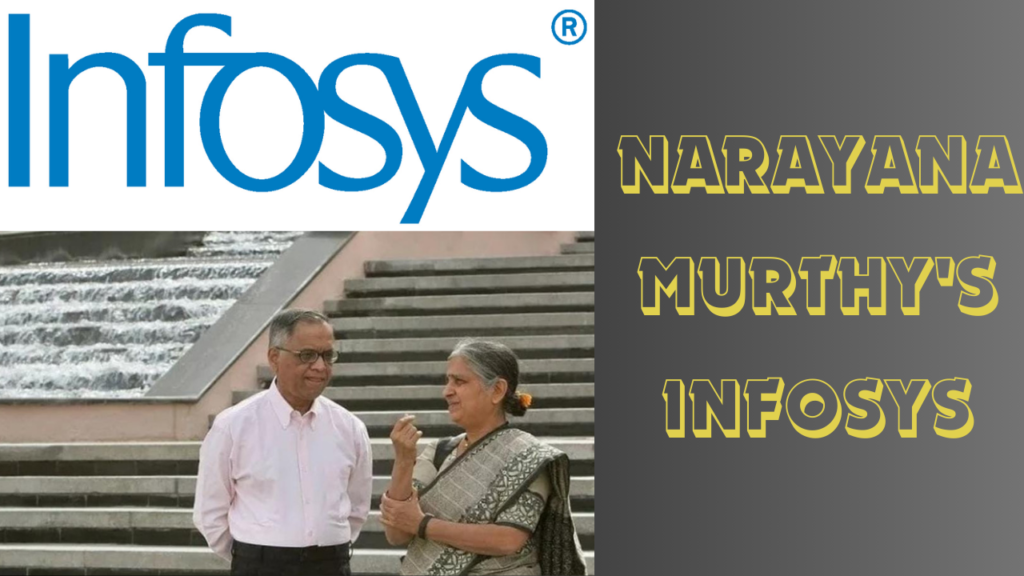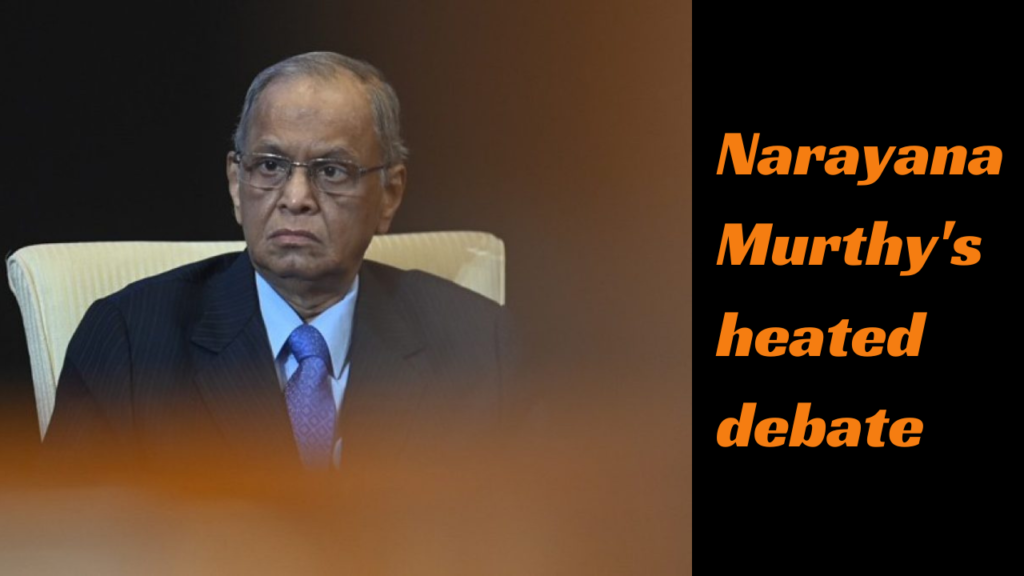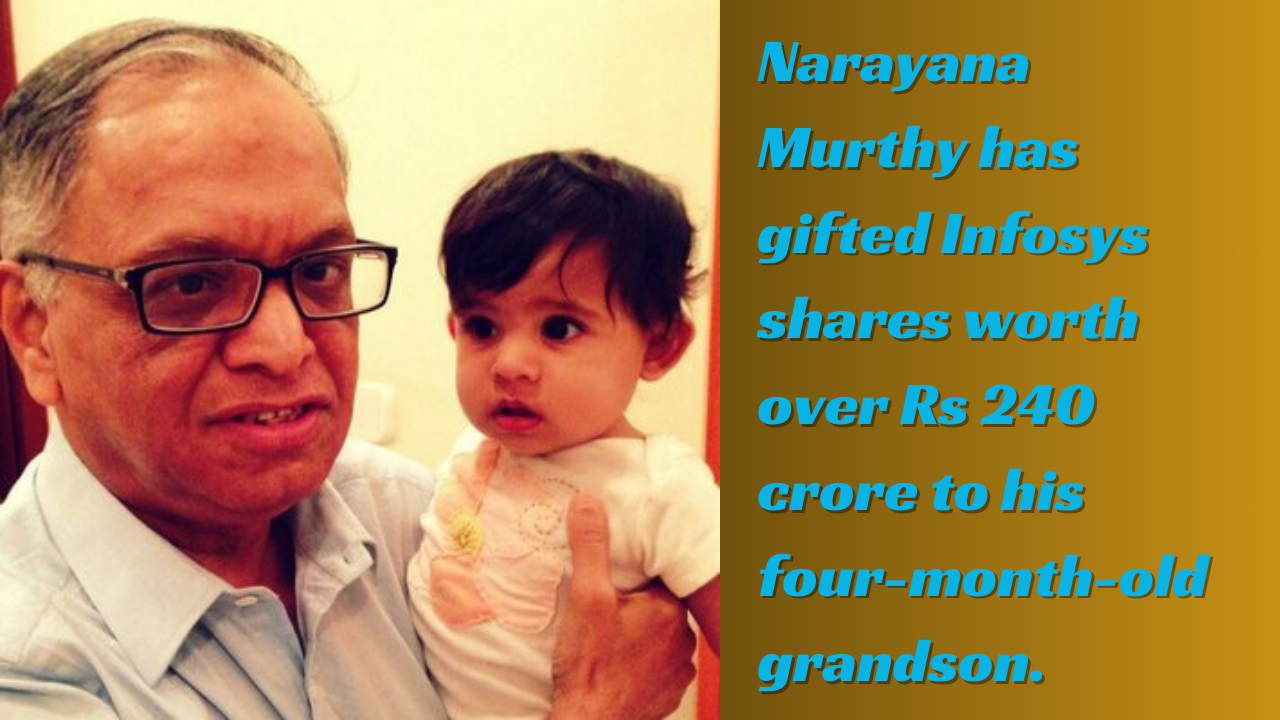Narayana Murthy, Infosys founder has gifted Infosys shares worth over Rs 240 crore to his four-month-old grandson Ekagra Rohan Murthy.
Although all the details of this transfer of shares are not known, like any other income, gifts are also subject to tax in certain circumstances. However, there are situations where gifts may be exempt from tax.
Table of Contents
Narayana Murthy is once again in the headlines:
Narayana Murthy, co-founder of Infosys is once again in the news, this time not for his mantra of working 70 hours a week. Mr Murthy has transferred over Rs 240 crore to his four-month-old grandson, Ekagra Rohan Murthy. Shares have been gifted, which has joined the list of millionaires in India. An exchange filing shows Ekagra holds 15,00,000 shares of Infosys, equivalent to 0.04 per cent stake in the company. The filing revealed that the transaction was conducted “off-market”. Mr Murthy’s stake in the tech company has declined from 0.40 per cent to 0.36 per cent to 1.51 crore shares.

Narayana Murthy's grandchildren:

Narayana Murthy's Infosys:

Narayana Murthy's heated debate:

How gifts are currently taxed in the hands of the recipient:
Gifts that are taxable:
Money: If you receive money gifts (by way of cash, cheque, etc.), taxation is applicable only if the aggregate value of such money exceeds Rs 50,000 in a year. Below this limit no tax applies.
So, if you receive cash gifts worth Rs 75,000 during a year, the entire amount will be taxable and not just Rs 25,000 (amount exceeding Rs 50,000).
Movable property: If you receive certain specified movable properties without any consideration during a year (that is, you do not make any reciprocal payment for them), and their aggregate fair market value exceeds Rs 50,000, the entire amount is taxable. Will be subject to. For example, if you receive jewelery and paintings worth Rs 20 lakh in a year, the entire amount will be taxable as it exceeds the limit of Rs 50,000.
If you receive certain specified movable properties for inadequate consideration (that is, you make some reciprocal payment for them), you will be taxed on the difference between the aggregate fair market value and the consideration paid for the properties, if the difference The amount is more than Rs 50,000. For example, if you receive jewelery and paintings worth Rs 20 lakh during a year for which you paid a total of Rs 12 lakh, Rs 8 lakh will be taxable.
Note that taxation is applicable only in the case of specified movable assets: shares/securities, jewellery, archaeological collections, paintings, paintings, sculptures or any work of art and bullion, and virtual digital assets (such as cryptocurrencies).
Immovable property: If you receive any immovable property (land and/or building) without any consideration (no reciprocal payment is made) where the stamp duty value (property value determined by the government) exceeds Rs 50,000, the entire Stamp duty value is subject to tax. So, if you receive a property with a stamp duty value of Rs 10 lakh as a gift, this entire amount will be taxed.
If you receive any immovable property for inadequate consideration (some mutual payment is made), then stamp duty is taxed on the difference between the value and the consideration paid, if the difference amount exceeds Rs 50,000. Suppose, you have received a property with stamp duty value of Rs 25 lakh for which you have paid Rs 10 lakh, then Rs 15 lakh will be taxable as gift.
Note that, in case of cash gifts and movable assets, the annual limit of Rs 50,000 (for each of them) applies on the total value of gifts received during the year. But in case of real estate, a limit of Rs 50,000 is applicable on each property transaction. So, if you receive multiple properties as gifts in a year, such that none of the properties violate the limit of Rs 50,000, no tax is applicable.
